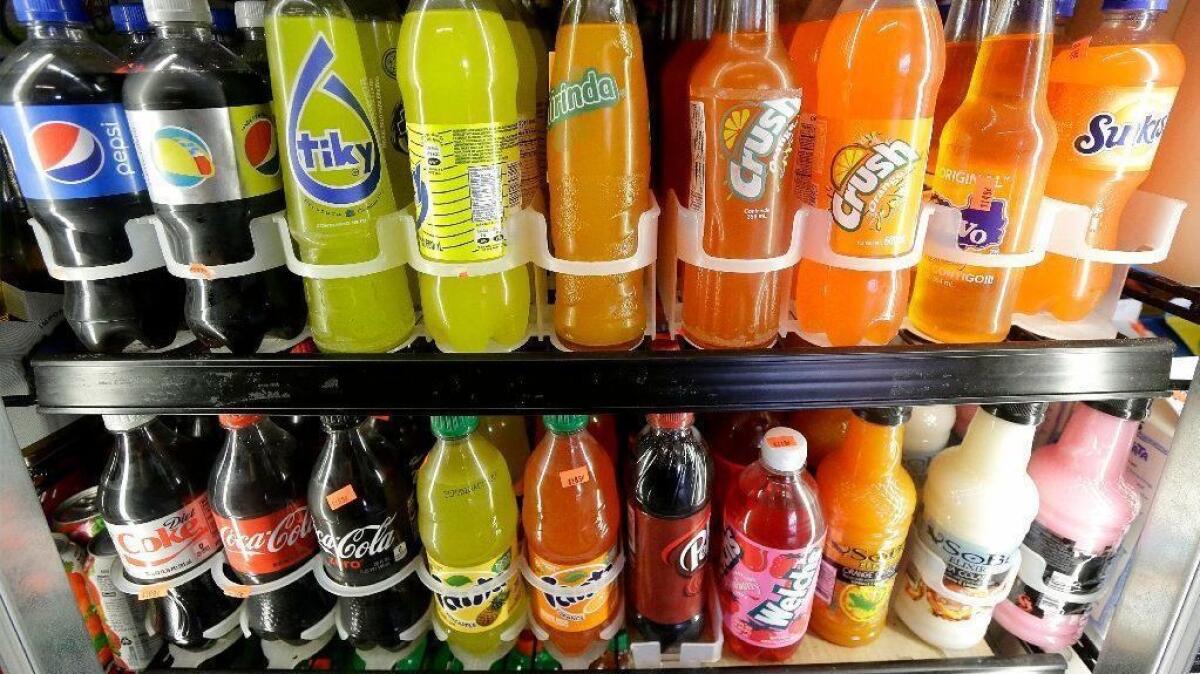Readers React: Taxing soda won’t reduce obesity; making kids and adults exercise more will

- Share via
To the editor: David Lazarus makes some good points about obesity, a major health issue that affects a significant percentage of Americans.
Are sugary sodas part of the cause? Absolutely. However, proposals in California to tax them or limit their serving size single out one culprit without addressing others.
What about candy, doughnuts, or many drinks at Starbucks? What about other high-calorie foods and “all you can eat” restaurants? Calories are consumed in many foods and drinks, not just soda.
When I was growing up in the 1950s, it seemed no child was obese. There were also no sugar-free versions of sodas, and there were not many low-calorie food alternatives.
What was the difference then? Kids walked, took physical education classes and were active after school. Today, too many children and adults get virtually no exercise. More taxes are not the answer; more physical activity is.
David Powell, Encino
..
To the editor: Lazarus’ column about the Republicans’ response to proposed soda taxes gets to the heart of the issue. Soda consumption is a pressing public health concern, and taxes are government’s best tool to protect the public from greedy beverage corporations.
Soda taxes are a matter of health justice. Lazarus correctly notes that obesity rates are higher among African Americans and Latinos, but he doesn’t say why. Like Big Tobacco, Big Soda targets low-income neighborhoods and communities of color with predatory advertising.
Big Soda should take responsibility for the harms and injustices generated by their products and marketing practices. But since beverage corporations will never put human health ahead of profits, soda taxes are the best solution that our society has on hand.
The tax revenue generated must be reinvested in the communities that are targeted by beverage companies. Funding childcare, preschool and access to healthy food in under-served communities are the best ways to counteract regressive taxation.
Marice Ashe, Oakland
The writer is founder and chief executive of ChangeLab Solutions, a public health advocacy group.
..
To the editor: Thanks to Lazarus for his excellent article.
Consuming beverages and food and added sugars can lead to a number of health problems, including dental cavities, obesity, diabetes, some cancers and heart disease. A 32-ouce soda contains about 23 teaspoons of sugar.
Geeta Sikand, Irvine
The writer, a registered dietitian, is the director of nutrition at the UC Irvine Preventive Cardiology Program.
Follow the Opinion section on Twitter @latimesopinion and Facebook
A cure for the common opinion
Get thought-provoking perspectives with our weekly newsletter.
You may occasionally receive promotional content from the Los Angeles Times.



